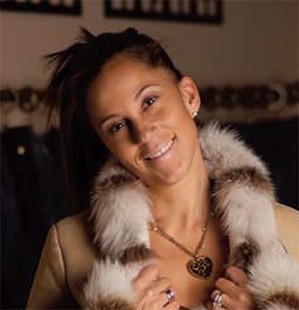
Cara Alexander's recipe for success requires equal parts entrepreneur's vision, businesswoman's practicality, and idealist's commitment.
In 2007 Alexander, former CEO of social services provider CARA, LLC, combined fashion with social work, launching DrewMatics, a high-end fashion boutique in suburban Atlanta. Though DrewMatics is a for-profit endeavor, Alexander use it to mentor teenage girls, hiring high school students and modeling empowering strategies.
The DrewMatics approach is no accident; social work is woven into the fabric of her life. Raised by a mother who counseled victims of domestic violence, Alexander planned her first intervention at age thirteen. "A classmate was obviously suffering, and when she confided that the state-run group home was little better than life with her crack-addicted mother, I told her to come live with me." After a family meeting and a home visit, Alexander's classmate became her roommate.
After earning her bachelor's in social work, Alexander headed directly for graduate school. "I was young, but I knew that U-M had the nation's best program."
ALexander benefited from many aspects of her SSW training, but the field placement prepared her for entreprenership. She considered a placement that meshed her interests in hospital care and children but opted for an administrative placement at teh U-M Hospital.
"It was competititve and intimidating," she recalls, "but under the supervision of Candace Berger, I observed the hard decisions about staffing and administration required to maintain organizational health. I learned the mechanics of administration without being vested in teh operations or outcome -- all lessons that I draw on."
After graudation, a colleague of Berger offered Cara a hospital-based social work position in Georgia. "I enjoyed the work and was well prepared," Alexander recalls, "But still needed a second job." Eager to work with children, she ensured that her side jobs filled this gap and gained experience wherever she could find it -- juvenile courts, hospice camps, private counseling.
"Those were busy years," she recalls, and, after a short respite, Alexander moved to Metro Atlanta Recovery Residency (MARR), a Temporary Assistance for Need Families program for women and children that treated substance abuse -- another new experience -- and taught clients self-worth and parenting skills. Though she was promoted to program director, Cara's vision to work exclusively with children remained a priority.
In 2002 she launced Clinical Alternative Resource Associates (CARA), LLC, a private provider offering mental health and case management services to children, adolescents, and families. "As a single mother, opening my own business was a risk -- but a calculated one. I had cultivated the relationships developed during my MARR years, and once the mental health community learned I had branched out, I received an amazing number of assignments."
During the firm's five-year existence, Alexander steered CARA, LLC, through the complex world of mental-health services marketization. "The state of Georgia acted on its belief that everyone should have access to, and choice of, providers." CARA was selected to be one of the seven providers, and Alexander and her staff of fifty inherited a full workload.
She concedes that striking a balance between family and work priorities required focus, and she often found herself running on three tracks at once. "I have to plan 'just-us' time with my children and ensure that I spend time with family. I can't 'save the world' and have my family be a mess."
What's the next step? Alexander continues to lead her social work-meets-fashion initiative, DrewMatics. And reflection on her public-private service offers guidance for the next phase. "CARA, LLC, was a good start, but I found myself and my firm hampered in helping people when well-meaning policy was implemented without understanding on-the-ground circumstances."
She has closed CARA, LLC, and returned to private practice so that she can assist clients and reduce administrative or regulatory concerns. "However, I learned from the half-decade of being a public provider that I cannot ignore politics or policy. Law school and a move toward influencing systemic change are definitely on the horizon."
--Elizabeth Leimback Zambone is a freelance editor and writer living in Valparaiso, Indiana.